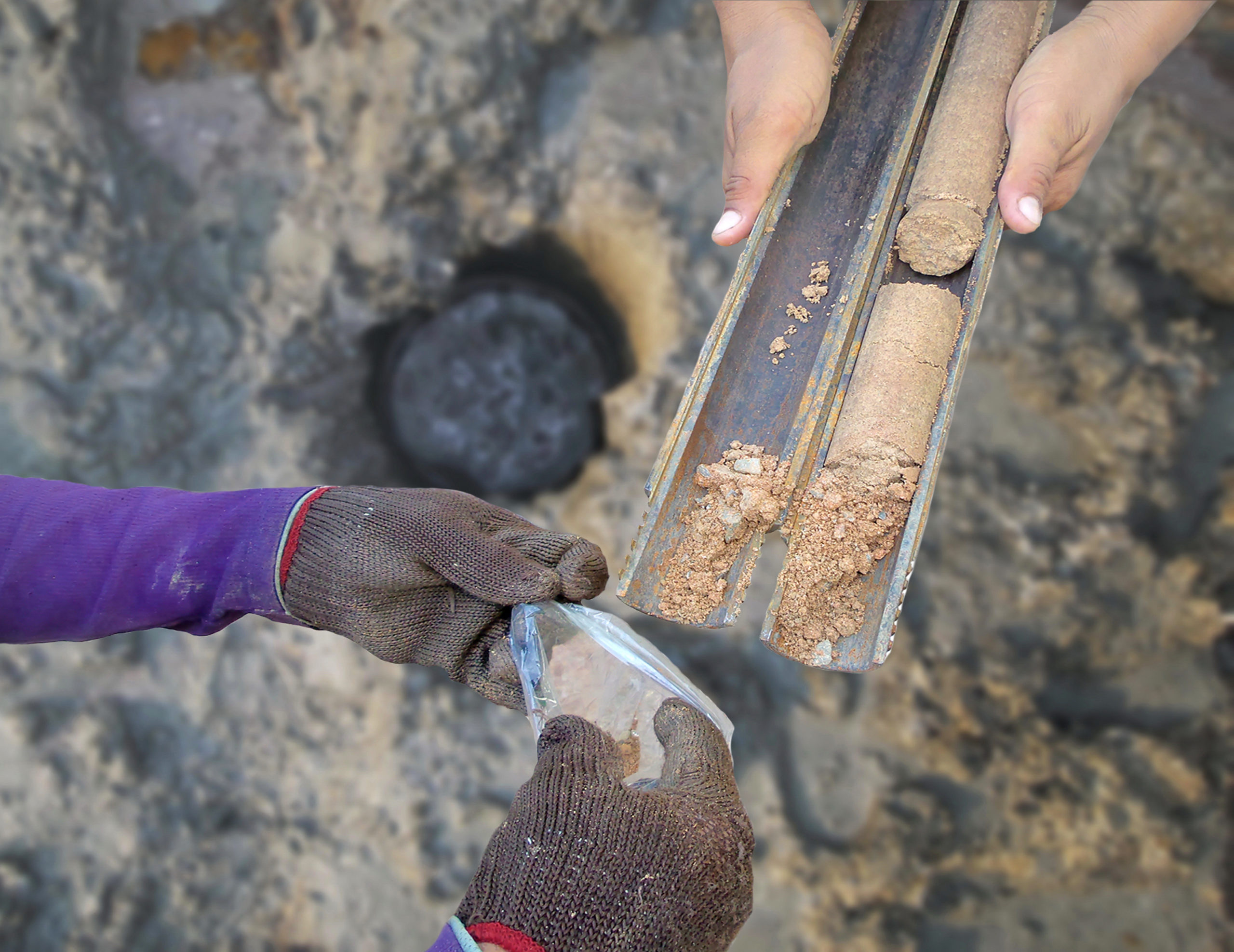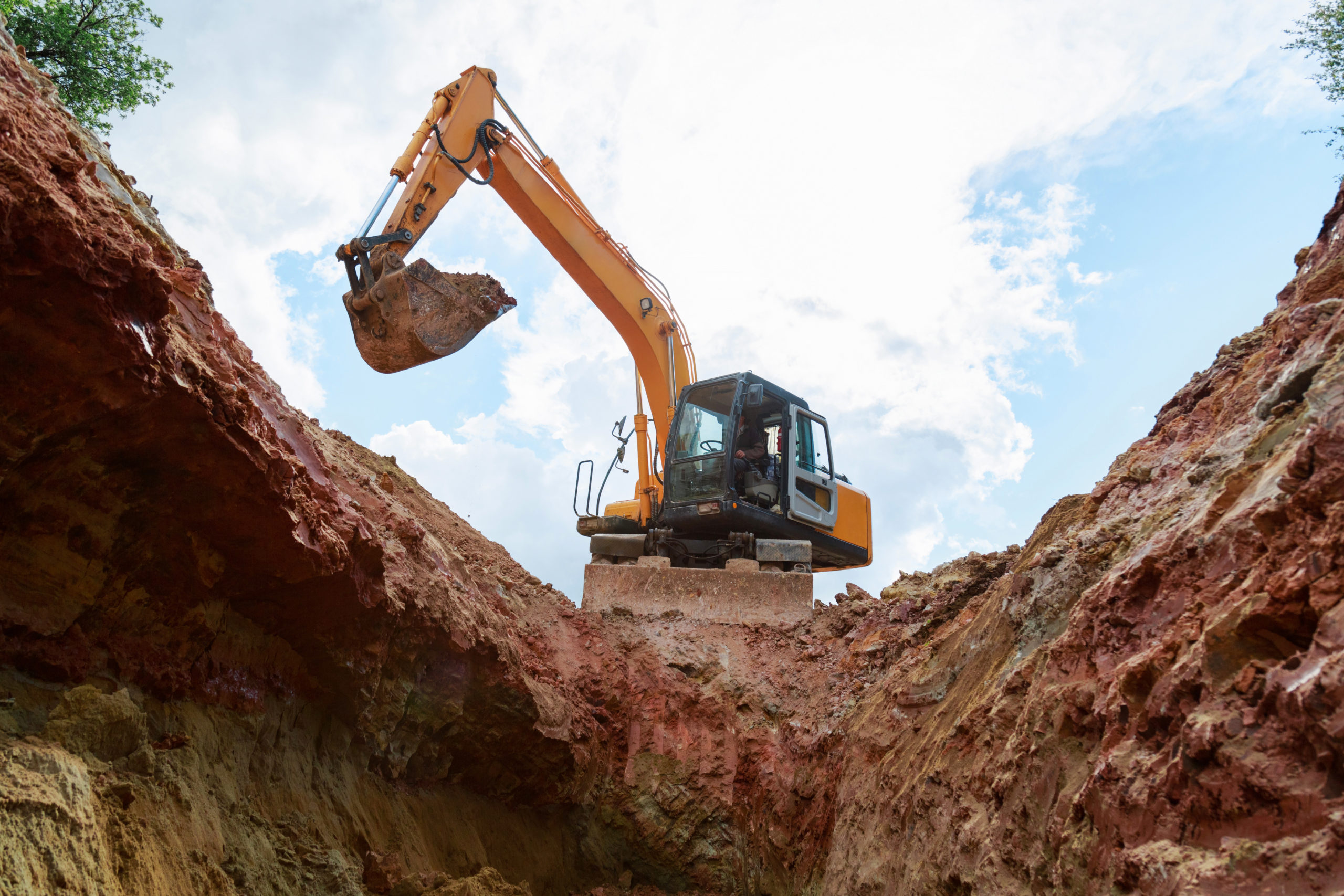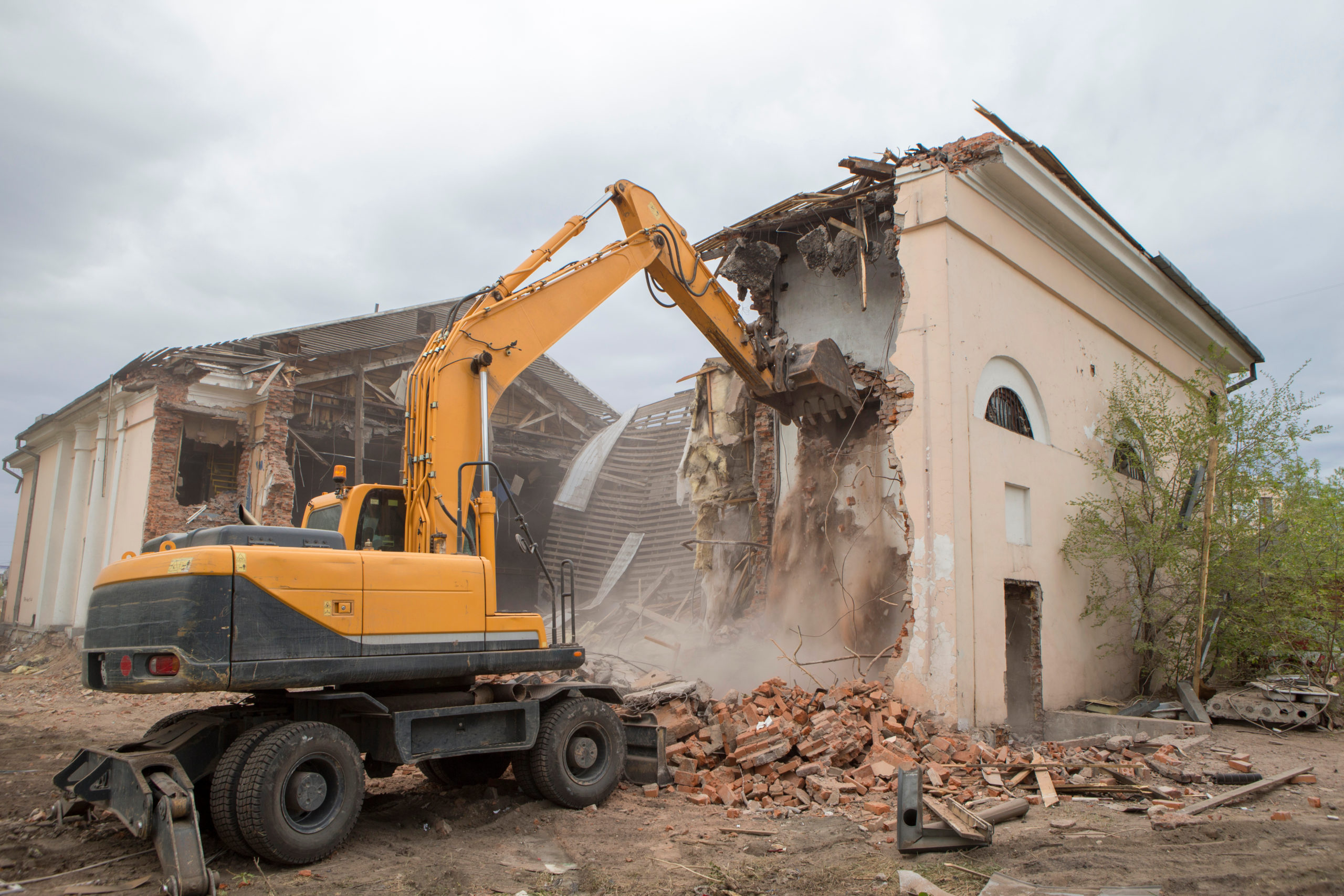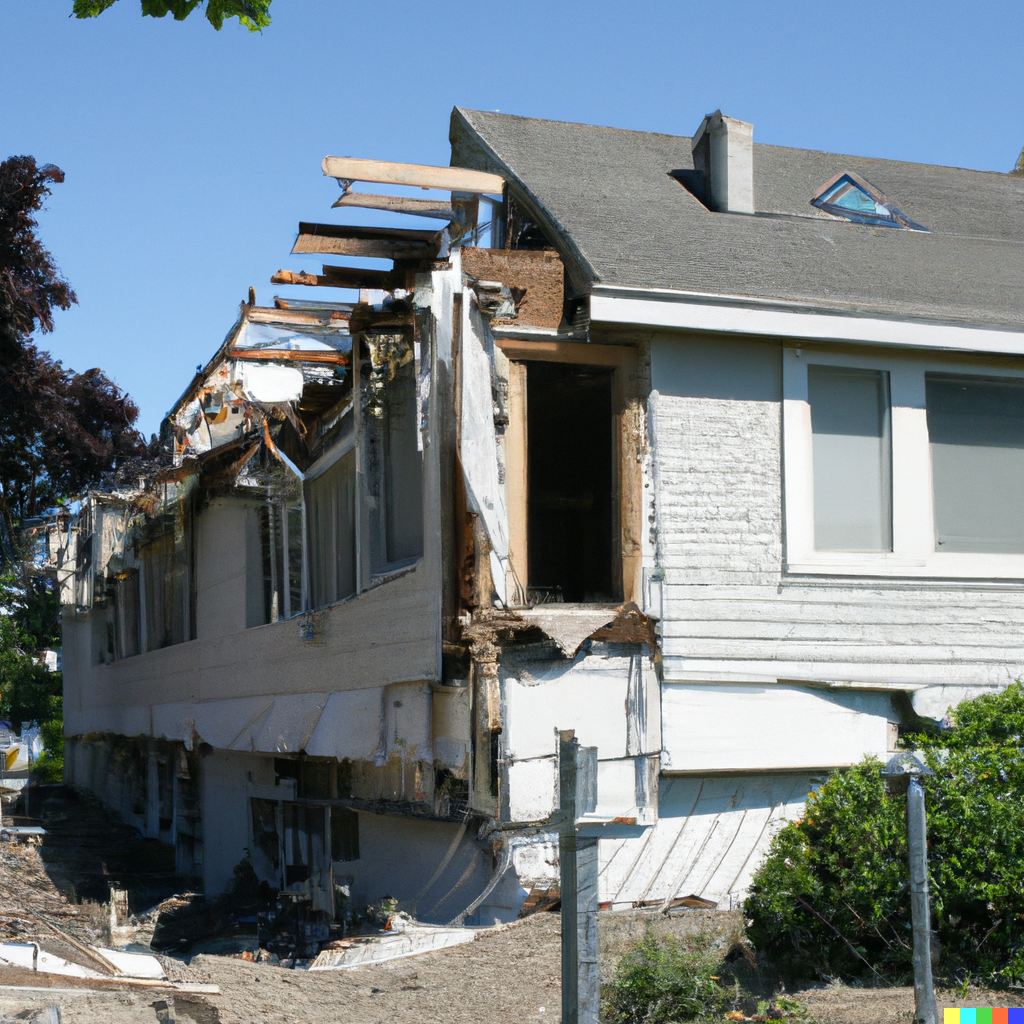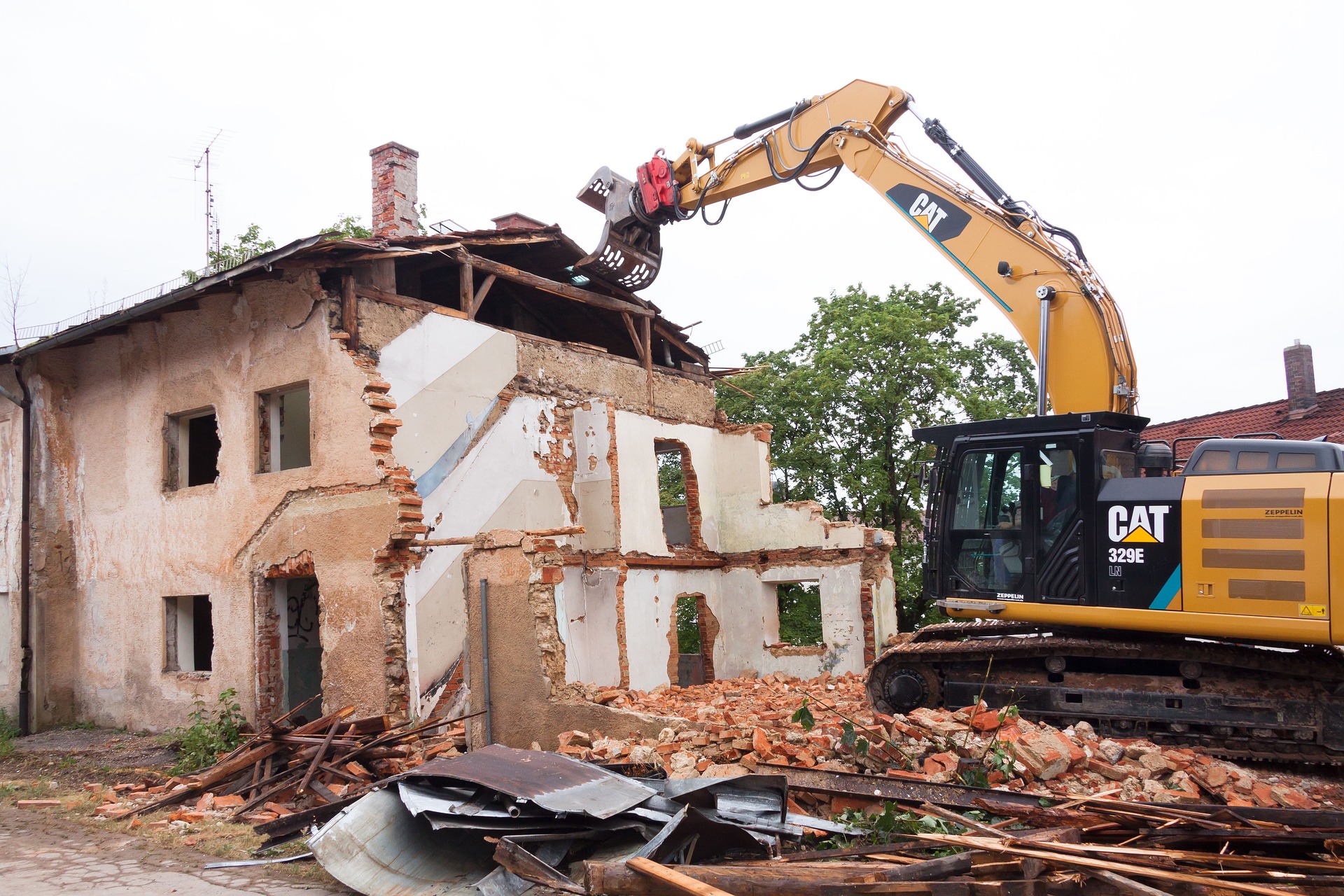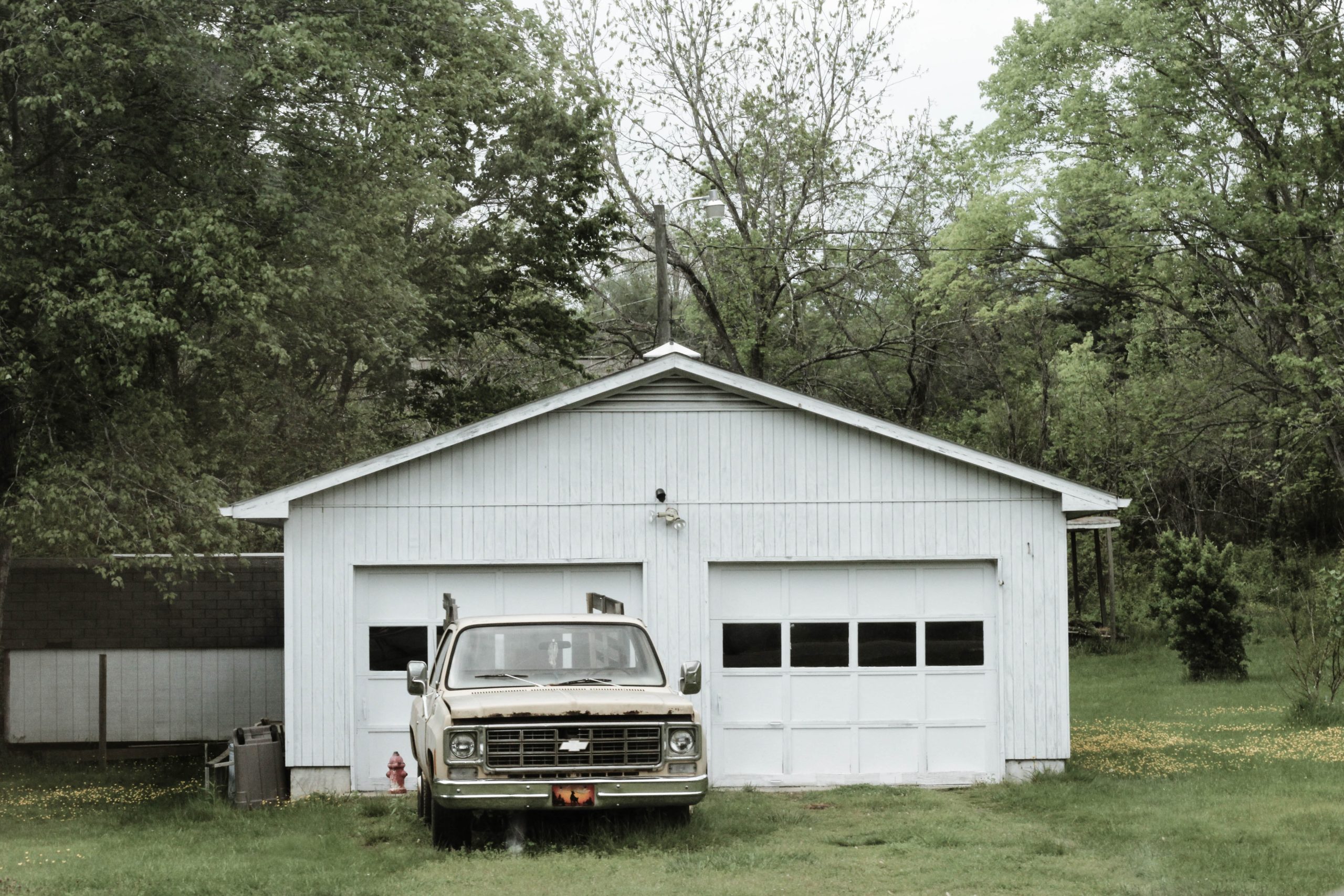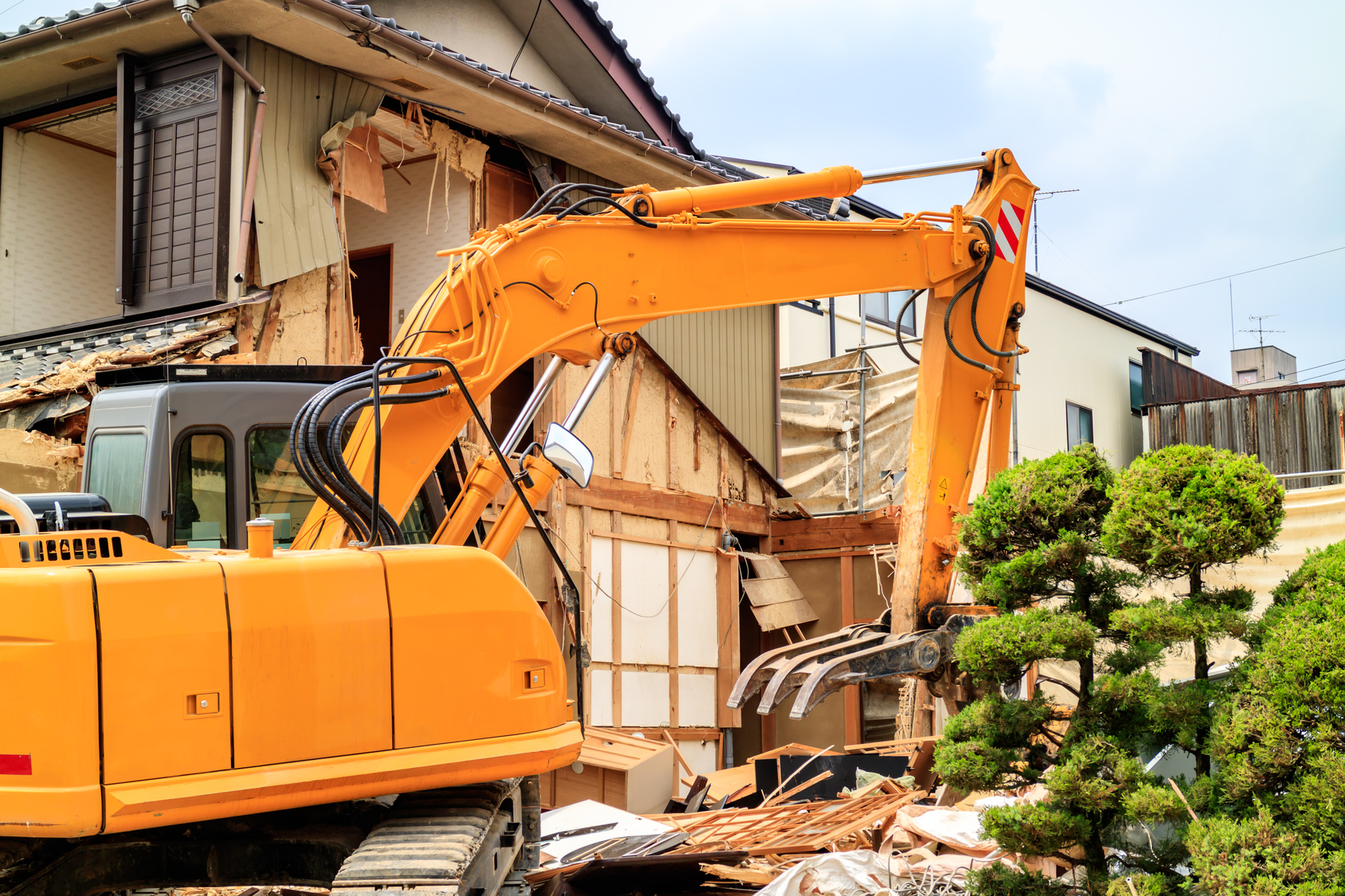Signs Your Soil May Be Contaminated
The first step when buying property is learning about the soil and if it meets your needs and is suitable and safe for plants to grow, animals to graze and play, and for your family to enjoy your home. You can always get your soil tested to find out if it is contaminated. Continue reading for some tips here for recognizing signs of soil contamination.
How Does Soil Become Contaminated?
Your first thought may be, what would cause soil contamination? Perhaps waste was disposed of in the area by the prior owner. This improper waste disposal could include heavy metals or toxic materials that do not wash out like normal dirt and grime. In addition, many other factors could contribute to your soil being contaminated including where the land is located, what the land was used for prior to you owning the land, and how old your home or building is just to name a few.
Ask our Mikula Contracting team about soil sampling to find out if contaminated soil is present on your property.
What Are the Dangers of Contaminated Soil?
Contaminated soil is dangerous for several reasons, most of which are related to your family’s proximity to the soil. For example, think about the food chain. If you grow plants and vegetables in a garden on the property, the contaminants can leach into the food you eat. Also, leaded paint is a worry regarding soil contamination. If the home was built before the 1970s, it’s possible that the paint chipped off and fell into the soil. Or the runoff from a painting job seeped into the soil. Similarly, arsenic was used on kid play structures as a preservative for the paint before it was banned.
The possibility of poisoning your children and pets with substances like lead and arsenic are good enough reasons to check for soil contamination.
Here are some ways to check for soil contamination.
Tell Tale Signs Your Soil May Be Contaminated
There are various ways to determine if your soil has been contaminated. Below are some tell tale signs that your soil may be contaminated.
Discoloration of the Soil
Usually, soil mixes together evenly to present a consistent color and texture. If your soil is discolored or stained in some spots, it may be a sign of soil contamination. In addition, an accumulation of oil or sticky substances may point to a toxic substance on your property.
If the appearance of your soil makes you feel uneasy, it is always a good idea to get it checked out.
Strong or Unpleasant Odor
Contaminated soil will not always present a smell. But if your soil was contaminated with petroleum, you would be able to smell the substance mixed in with the soil. Talk to a contractor to find out if your soil smells normal.
On the other hand, if your soil is contaminated with heavy metals, lead, or arsenic, you will not be able to identify it through smell. Be careful about writing off soil contamination just because you do not smell anything suspicious.
Soil Erosion
The soil will start to blow away and erode when it does not have plant life to keep it grounded. Erosion and its lack of life is a good sign that something is off in the soil.
Lack of Animals or Plant Life
Do you notice that nothing is growing on your plot of land? Do birds ever land in the area for a rest? Does wildlife avoid your property completely?
The absence of plant and animal life on the property is a sure sign that the soil is contaminated and unsafe. Plants do not grow in bad soil. It’s time to call Mikula Contracting to check out the area and identify the problem.
Solutions for Soil Contamination
Soil remediation is the solution to soil contamination. You can cleanse your property’s soil, so it is safe again. Here are some examples of soil remediation:
- Excavation: Remove the soil completely and replace it with fresh backfill soil.
- Blending: Sometimes, you can “water down” the concentration of the harmful substance by mixing the existing soil with new soil. If it is not as concentrated, it will not pose a threat. This is to be done by professionals and tested after the mixing to make sure the soil is safe.
- Removed and Treated: You can always excavate the soil and get it cleansed at a treatment plant to be replaced on the property. The team will test it thoroughly and make sure the treated soil is safe and ready for plant life.
- Bioremediation: Some bacteria or fungi break down the toxicities found in contaminated soil. You can use these microorganisms to make your soil clean again.
- Cover the Area: This is not a long-term fix to your soil contamination problem. But you can always pour a patio or driveway over the area and not worry about growing grass. Dangers to animals and children may still be present with this option.
- “Capping”: Another quick fix includes layering a foot of fresh soil over the top of the contaminated soil, hoping the contaminants do not travel to the new soil.
Please remember It’s critical to make sure you are working with a reputable environmental firm and excavation company that will ensure you are compliant with all regulations and handle your needs accordingly.
Consult Mikula Contracting for Soil Contamination Concerns
Mikula Contracting can help you with soil sampling and testing to detect soil contamination on your property. Our excavation team is skilled in soil remediation and can find a solution to your problem. You may feel overwhelmed about where to start, which is why our trusted team can answer any questions you have.
We are leaders in the excavation industry, helping cleanse soil and restore your yard to a safe and flourishing place. Contact Mikula Contracting to get a free quote.
Soil Remediation Project in Newark, NJ
In New Jersey, it is a common practice that a test pit excavation is ordered before construction starts on a commercial and/or residential property. If there is any reason to believe that the soil is contaminated, the soil needs to be remediated and replaced with new soil.
Property openers or those who represent the property owners, like environmental consultants, will order a test pit excavation to be sure the construction is not built on contaminated or unsafe soil. Read on to learn about a local soil remediation project in New Jersey that was recently completed by our team at Mikula Contracting.
The Project
We were hired for a test pit excavation at a site in Essex County, New Jersey. When we conducted the test pit excavation, which was originally scheduled as a 2-day project, contaminated soil was discovered, and it was found to spread even further beneath the surface.
At that point, the test pit excavation became a full soil remediation project. Our 2-day contract turned into an ongoing soil remediation project, which called for the removal of soil from the site. Certified material needed to be hauled onto the site to replace the outgoing contaminated material.
The environmental cleanup will likely take months in order for it to be environmentally compliant for commercial use. Once the remediation is complete, the site work can continue with the clean material now on the property.
Equipment Used
We used a variety of equipment to get the job done right for this New Jersey test pit excavation. In addition to the equipment, we needed more laborers on the site to work on this unexpected project. Some of the equipment included:
- Excavators: The excavators moved out large amounts of soil to be transported away.
- Clean Backfill: Once the contaminated soil that was discovered in the test pit was removed, we had to fill the empty area with certified material. It took soil testing to determine how much soil needed to be removed and replaced.
- Trucking: We used trucking to transport the contaminated soil away from the property and bring in new certified material.
- Stone: The project required stone to be removed from the deep pits that were being built. New stone was also implemented throughout the project.
Once we pivoted and started on the new project, we were able to provide the proper equipment and professionals to get the job done.
How Long Did It Take?
Once we knew that the project would be longer than expected, we took the time to organize a new plan. When soil contamination is discovered at the site of a proposed commercial project, the client must address the problem. In order to have a commercial property approved for site work and construction, the owner must provide their certified material paperwork.
Once a new plan was presented to the client, we started on the project as soon as possible. After months of work, we are still not finished. The soil remediation efforts have continued as soil contamination was discovered deeper and wider through our test pit excavations on the site. We will continue to work for a few more months on this project in order to provide a clean and approved site.
How the Team Handled Surprises
When the unexpected happens, the best you can do is learn the scope of what needs to be done and organize new plans for the labor and equipment needs. We reviewed the new plan with the client and got started.
We also ran into some weather-related delays as we worked on this project. With our company, safety always comes first, so we stayed in constant communication with the client as there was no reason to waste time and take risks on a project in unsafe site conditions.
Contact Mikula Contracting
Learn more about how Mikula Contracting can help you with your New Jersey test pit excavation service. Certified contractors are used to dealing with the unexpected. You never know what you’re going to get when you start excavation.
Our team is skilled at talking with the client and keeping them updated on each step of the project. If we discover something significant in the test pit excavation, we work alongside an environmental team to provide solutions for the site.
Failing to treat contaminated soil conditions could cause poisoning from lead, arsenic, or other hazardous substances. In addition, if you grow vegetation on the soil and eat vegetables, you can ingest the harmful substance through the food. Soil discoloration, strong odors, and the absence of plant or animal life near the property may be signs of contamination. Pouring cement and paving asphalt over the contaminated soil will not make the problem go away. Soil remediation is vital to owning a safe and certified property. Contact Mikula Contracting for a consultation on your property if you suspect any soil contamination.
Test Pit Excavations and What They Can Find
Most test pit excavations occur at the beginning of a construction project before the work begins. These thorough site investigations provide answers to questions like:
- What kind of debris or rocks will we run into when digging the foundation for the building?
- Is the soil contaminated with oil, gasoline, or other toxic substances?
- How deep is the water table?
- What is the level of groundwater seepage?
Test pit excavation provides these answers and more at a fraction of the price of fixing the problem if something major were discovered well into the construction process. If you have already constructed a large part of the building to find out the soil is not solid enough for your structure, you are in for a lot more money to solve the problem.
What Is a Test Pit Excavation?
Test pits are a smaller version of a dig on a construction site to get a picture of what you’re working with on the property. Test pits may also be referred to as trenches and can be long and skinny, and somewhat shallow. Each project will have its own specific depth requirement for the test pit excavation.
It is also very common to dig a few test pits around the property to make sure the soil is consistent and uncontaminated.
What Are the Benefits of Digging a Test Pit?
The benefit of digging test pits is getting answers before the construction begins. When you are better prepared to run into the water table while digging the foundation, you will have a plan for a different type of foundation. Or you can have equipment ready that will help you face potential issues.
If the soil is contaminated, you can take care of the issue before a giant structure is in the way. Keep your contractors safe, as well as the people who will enjoy the commercial or residential property, by choosing soil remediation and certifying the soil to environmental standards.
What Are the Drawbacks of Digging a Test Pit?
The only drawback to digging a test pit is finding nothing worth noting. Even in that case, it is not a waste of your money to start your construction project with peace of mind.
One other potential problem that could occur with test pit excavation is hitting utility pipes under the ground. However, this only happens occasionally because a markout is required before digging which means that utility companies have to mark where their lines are in order to prevent something like hitting the pipes from happening.
The Purpose of Test Pitting
A test pit excavation helps your team prepare for a hefty construction project. If you find out that there is an abundance of roots in the area, you can provide your team with the equipment to cut through the roots as you dig for construction.
If you find the soil does not absorb groundwater and is sloshy after several days of dry weather, you will need to replace the soil with dirt that absorbs water. These discoveries can save you thousands of dollars when they are detected before the project begins.
Although not common, perhaps you order several test pit excavations on your property and discover an underground oil tank. Or maybe the owner before you had a swimming pool and filled it in instead of removing it completely. Both of these instances would be valuable to know before you further invest in the property.
Why Hire an Excavation Company to Perform a Site Investigation?
Let our team come by for test pit excavation to find the answers to your soil questions. We can dig trial pits to show what may be discovered on the property. Our team will perform tank scans and will work with survey companies to ensure that there is no underground structure.
Once the test pit excavation is complete, our partners in environmental engineering will provide a full report about the quality of the soil, if there are any underground structures, and if the soil is solid enough to hold a structure.
Knowing these answers will help you obtain insurance and a clear certification from environmental services on your building project. Safety comes first in all things, and that includes test pit excavation.
Complete Your Test Pit Excavations with Mikula Contracting
Mikula Contracting is a name you can trust in the excavation industry. Our team is proud to serve New Jersey residents and business owners as you venture into a new construction project. If you are ready to choose a property and want an inspection before the sale goes through, we are happy to dig a few test pits to see what you are working with.
You always want to be sure that you are getting a good deal with the land that you invest in. Our team can guarantee a full soil inspection to learn what to expect if you build on specific land. Arm yourself with knowledge by contacting Mikula Contracting today.
Types of Soil Remediation Strategies
Soil remediation is required when you find a harmful substance in your soil that can be harmful to animals, people, and plant life. If you fail to treat your soil, you will incur federal fines that can be detrimental to your business or construction project.
You should always test for soil contamination before a construction project begins through test pit excavation. Not only will you save thousands in excavation costs if you don’t have to conduct soil remediation under a building or a half-built structure but depending on the type of work you’re doing and the municipality you are located in a test may be required, regardless.
What Is Soil Contamination?
Soil contamination can occur if there was previously an oil or gasoline spill on the property. Perhaps the property had a building with lead paint or arsenic paint treatment on it that chipped off into the soil. This could mean that contaminants like lead or arsenic might be present in the soil.
Contaminated soil can be harmful to people and animals. If you eat food grown in contaminated soil, the unwanted substances could spread to the food and into your body.
Detect soil contamination by noticing discolored or stained soil. You can also identify soil contamination from strong odors, like oil or gasoline. If you see an area with no plant life, that is also a sign that something is wrong with the dirt. Animals will tend to avoid contaminated soil.
What Does Soil Remediation Do?
When you detect contaminated soil, environmental remediation is required. This is not a project to put off. Your family’s health could be at risk. If it is a commercial property, the public could be at risk. Take care of your property by choosing the right soil remediation method.
Soil remediation cleanses the dirt so that it is no longer harmful. There are several methods used for soil remediation. Situ methods are remediation efforts made while the soil stays in place. This can include mixing clean soil to dilute the effects of the harmful substance or cleansing it in other ways.
Phases of Soil Remediation
Soil remediation methods are offered to remove the presence of heavy metals, poisons, or toxic substances in the soil. The remediation efforts can happen in phases to see which method works on the contaminants present. After each method, the soil is tested to see if it is clean and safe again.
Bioremediation
Bioremediation is a biological treatment of the soil. Bacteria and fungi are released into the soil to see if they attack the toxic substances and eliminate them that way. Each substance will react differently to the bioremediation, and success will also depend on the breadth and concentration of the toxins.
Once the bioremediation effort is complete, you can see how far the method got in terms of cleansing the soil. If you find good results, you may continue with the bioremediation efforts without going on to further remediation methods.
Physical Treatments
The contaminated sites can be remediated with physical treatments. This can involve removing the soil and treating it away from the construction site. You can also mix the soil with healthy soil to find out if that dilutes the toxins enough. Here are some examples of situ techniques.
Soil Washing
Soil washing is the process of using water to flush out toxins. Or you can use a sifting system to remove the contaminated particles from the clean soil particles. Soil washing is done while the soil remains in place and is tested after each attempt.
Soil washing is an efficient soil remediation method because you do not have to move the soil off-site. All soil washing steps occur while the soil remains in the ground.
Soil Encapsulation
Another method for remediation is soil encapsulation without removing contaminants. This method requires pouring cement to trap in the contaminants and keep them from harming people or animals. It is a quick fix and will not solve the problem completely.
Thermal Desorption
Thermal soil remediation uses high heat temperatures to kill the harmful substances in the soil. The heat creates a layer of separation from the soil, which can then be removed. Or depending on the contaminant, the heat can evaporate the substance into the air and away from the soil.
When you see the toxic substance separated from the soil, it is easier to identify and remove without needing to remove the good soil. Talk to your contractor about testing the soil after the thermal remediation to see how successful it was.
Chemical Oxidation
Use reduction and oxidation to transform the contaminated substance into a non-toxic substance. Sometimes the harmful substance reacts to chemical oxidation and is no longer dangerous after this treatment.
Why Remediate Your Soil?
Take part in environmental protection by remediating contaminated soil. Building a structure on top of contaminated soil is a human health issue. Do your part by detecting the problem early and fighting to find the best methods of remediation. You will never regret taking the necessary steps to ensure your family or clients can experience safety while on your property.
Mikula Contracting Is Your Soil Remediation Solution
Mikula Contracting is your trusted contractor for soil remediation. We are familiar with the potential harm to New Jersey soil and can discuss underground oil tanks and other issues that lead to contaminated soil. How can you detect soil contamination? By calling our team for help who can connect you with environmental engineers who will work with us on the process of testing and remediating the soil as required. Our contractors will not only remove soil that needs to be remediated but we can even transport the soil for remediation and treatment. In addition, we can also bring in clean fill and soil to replace the contaminated soil.
Our contractors are skilled with test pit excavation and soil testing to determine the health of your soil before you start construction. Save yourself time and money by learning the answers now to your property’s soil status. Contact Mikula Contracting today!
Five Common Residential Demolition Myths
There are many misconceptions and myths concerning residential demolition. Many people think demolition is just destroying the old, even historic homes and buildings, for selfish reasons and only to bring about new, modern construction. This isn’t quite the case. Let’s debunk some of the outlandish myths associated with residential demolition so you can understand more fully what is involved in such projects.
Myth #1 - Demolition Is Not Environmentally Friendly
Demolition results in harm to the environment no matter what you do to avoid it, right? This myth is not true. Professional demolition companies use methods to aid in removing and properly disposing of harmful substances to protect natural resources from any harm during a demo. There is quite a bit of thought and effort that goes into protecting the environment.
Not only do companies like Mikula Contracting work to protect surrounding people and places, but they also strive to be environmentally friendly by recycling any materials possible and working with clients to meet their contracting needs.
Myth #2 - Demolition Is Chaotic and Dangerous
Demolition is often viewed as buildings being blown up and things going wrong. It’s what gets the “hits” and “clicks” on the internet, isn’t it? In reality, the demolition industry is much more complex, and demo work is done carefully, with a great deal of preparation.
There are risks involved with demolition, but everything possible is done to keep our crew and others safe. Inspections are done, hazards are removed, and every part of the job is examined before the demo starts. In addition, Mikula Contracting strives to constantly enhance our skills and continue to improve our technique as we keep up with new and changing industry standards, keeping all involved safer than ever.
Myth #3 - Demolition Is Expensive
You may have heard that demolition is expensive and that you should do everything you can to avoid it. Fortunately, this isn’t necessarily the case. Saying demolition projects are just “too expensive” is a very sweeping statement, and the price will depend on the job. Really, when compared to the rest of the construction that will take place at the demolition site, the demolition itself is often a relatively small part of the expense.
Myth #4 - Demolition Destroys Historic Buildings and Homes
The truth is historic buildings and homes are rarely torn down and demolished, so this myth can be easily debunked just by looking at the numbers. Demolition services are sometimes even used to help preserve historic buildings as safety updates are made. In fact, if a historic building is demolished it is typically done for safety reasons.
Historic buildings, homes, and structures can be moved or repurposed which is why it’s important to work with an experienced demolition contractor. In addition, professional demo crews have experience narrowing down only specific parts of a building that need demolition while still ensuring the structural integrity and strength of the remainder of the building, increasing the longevity of the historic structure.
Myth #5 - All Demolition Companies Are the Same
How hard can it be to knock down walls and tear down old construction? Well, it’s much more complex than you may originally believe. Residential demolition is not something that just anyone can do. It can be dangerous for those performing the demo as well as those in the near vicinity and possibly for those that will live there in the future if the demolition is not done right. Beyond this, “demolition” as a concept applies to a much broader range of skills and equipment than a layperson might expect. For example, a contractor who does demolition on commercial buildings may not work on residential homes, or vice versa. Similarly, demolishing exterior walls or full structures is different from taking down interior walls, and your contractor may not be equipped to handle one or the other. Be sure that your contractor understands your needs so they can ensure that they have the people, skills, and equipment to manage your project.
There are technical and safety precautions that must be taken, as well as environmental concerns that must be addressed. Not all demolition contractors are the same. Choosing the right demolition experts to do the job is crucial.
When picking from a slew of demolition companies, make sure to:
- Gather several quotes before making a choice. Make sure you’re comparing the small details as well as the bigger ones.
- Establish clear communication. Make sure you are clear with your contractor about how and when you would like to communicate during the demolition process, and that they agree it’s something they can abide by. Also, be sure that you are clear on what you expect and want on the project itself, including specifics.
- Plan out an expected timetable. Agreeing on an acceptable timetable for your demolition work to be completed in the beginning will establish expectations. If your contractor is unsure about a timeline and doesn’t want to confirm any deadline, you may consider moving on to a different company.
- Look at previous work and experience.
- Check out licenses and insurance and confirm they are current.
- Be sure your contractor will take care of demo clean-up and disposal so that you’re not left to do the dirty work unexpectedly.
The Demolition Experts at Mikula Contracting Are Here for Your Residential Demolition Needs
Mikula Contracting is the demolition crew that takes the time needed to complete your residential demolition with the utmost care. Our goal is to relieve the stress surrounding your home demo because of the complete trust and confidence you have in our demolition process.
Don’t just take our word for the great work we do. We have completed many demolition projects of different sizes and encourage our clients and potential clients to see our work for themselves.
Ready to get started on your residential demolition? Mikula Contracting is ready to get started! Give us a call today.
Why You Can't Ignore Contaminated Soil
Contaminated soil can present concerns not only to our health but also to the well-being of the environment around us. If not addressed and managed correctly, dangerous threats within contaminated soil can spread not only to people and the environment in the immediate vicinity but to wildlife and even the ecosystem, causing long-lasting damage.
What Is Soil Contamination?
Contaminated soil is soil that contains elements in it that weren’t naturally there in the first place. The contaminants are added by human activity, whether directly or indirectly. The soil could have been contaminated many years before, and its tainted properties were just recently found. It could also be the direct (or indirect) result of something going on currently.
Contaminated soil happens in a variety of ways, but one of the largest sources comes from industrial activities from years ago, resulting in large amounts of industrial waste. Military activity is another source of soil contamination, including metals, radioactive substances, and more. Farming chemicals, landfill leaching, unsuitable waste disposal, the list goes on and on.
If you know that your soil could be contaminated due to the area it is situated, the property history, or you find that it’s unsafe after testing, you must act and begin soil remediation as soon as possible. Although it can be costly, the risks associated with being exposed to contaminated soil could cost you and your loved ones even more.
How People Can Become Exposed to Soil Contaminants
Unfortunately, there are many ways that people can be exposed to contaminated soil. Some of the most common include:
- Ingesting or eating soil – Kids playing in the dirt can accidentally ingest the dirt or even breathe in the dust. Of course, there are always the curious kids that try eating dirt by the handful too.
- Breathing in the dust – Small parts of the soil can become airborne as the wind blows, or disturbed by trucks driving over it, etc. Think of construction, mining operations, landscaping, and more. Breathing in these dangerous particles can cause physical or chemical harm to our bodies.
- Absorbing it through the skin – Some contaminants can even be absorbed through the skin.
- Eating food grown in contaminated soil – Have you considered having your garden soil tested? It’s probably a good idea, even if it’s a community garden. If you grow food in dangerous soil, you put yourself and your family at risk, as the food could also end up contaminated. Be sure to thoroughly wash your vegetables before consuming them.
- Contaminated soil blowing or running into your otherwise clean soil – Maybe your farm is located near an area that takes care of hazardous wastes. In time, and with the help of rain, snow, and wind, the contaminated soil can make its way to your farm.
How Contaminated Land Can Affect Your Contracting Projects
Land that has been contaminated with hazardous materials can pose a risk to human health, animals, and plants. Depending on the type of contamination and location, groundwater and drinking water could be infiltrated quickly.
If contaminated soil is found at your construction site, there will surely be time delays as toxins are identified. There will also be some costs involved in soil remediation and/or removal as you make sure you are compliant in managing the contamination that is found.
Reviewing any kind of environmental reports you can before your contracting project begins can help protect those working at the site and prevent possible mishandling of contaminated soil. Be aware of historical land use and what took place at the site of your project beforehand to save time and money.
If you do not handle contaminated soil properly, the safety of those who come in contact with it, as well as the environment, could be poorly affected. It is legally the responsibility of the property owner and developer to handle such contamination. Mikula Contracting is familiar with handling soil remediation projects and can work with environmental engineers through the entire process so you are ready to begin your construction project that has been delayed.
Soil Remediation Options
Luckily, regulations and standards have helped prevent soil from becoming contaminated, but they have only been in place for 30-40 years. Some contaminated land has been cleaned up through soil remediation, but other contaminated sites remain neglected and untouched.
When remediation is taking place, it can either be taken care of at the site or carried off-site for treatment. Contaminated soil can be treated with biological treatments, chemical treatment options, or physical methods. The type of treatment you will use will largely depend on what types of chemicals are present and how badly the soil is contaminated. At Mikula Contracting we work with environmental firms and engineers on handling remediation and how to address it properly. Remember, if you have contaminated soil that is being taken off-site, it must be disposed of at an accredited facility in accordance with local guidelines.
Let Mikula Contracting Guide Your Soil Remediation Project
Mikula Contracting takes pride in every project we complete. We make sure that soil is tested if contamination is suspected, and we will guide you through soil remediation if necessary. We believe in doing each job right, and this includes keeping everyone safe and healthy. If soil remediation is needed, we will help you obtain the proper treatment so that you can get on with your construction project.
Contact Mikula Contracting to get started on your contracting project or to learn more about how we can help with soil remediation at your site.
Environmental Considerations When Demolishing a House
Demolishing a house sounds pretty straightforward – grab a sledgehammer or rent a piece of equipment and begin tearing things down. It’s not quite that easy, though. Many environmental and health consequences can come from demolishing a house. We will examine some of the most important things you should pay attention to during the next house demolition you may be involved in.
Pre-Demolition Inspection
While you most likely want to jump on your demolition project as soon as possible, taking a step back and getting a pre-demolition inspection is one of the smartest things you can do. This inspection can pick out things you need to know before demolition; factors like what kind of materials you are dealing with and what needs to be removed before the demo can even begin. Environmental problems that need to be handled and/or monitored can also be examined in an inspection.
Sometimes, a pre-demolition inspection is required and is not a choice. Be sure you know the regulations in the location of demolition so you don’t do harm to the environment and don’t get hit with some hefty fines! Submit any required forms, and get those permits and any other approvals you need before your demolition begins.
Mode of Demolition
There are a few different modes of demolition, and usually, the choice of what approach you use depends on the demolition sites and what is being torn down at each location. In addition, the type of building materials that are in place in these structures is also considered.
Some of the approaches that are taken include a sledgehammer, bulldozer, wrecking ball, excavator, and more.
Asbestos Presence
Asbestos is a dangerous substance made up of several minerals that naturally occur in nature and fibers that resist heat. Asbestos was installed in thousands of homes across the United States before the dangers of asbestos and its links to cancer were discovered. Sadly, asbestos has been found to cause lung, ovarian, and laryngeal cancer and is the primary cause of mesothelioma, which is cancer that forms in the lining of the lungs or abdomen.
If asbestos is present in a home or building, it needs to be removed by a professional that knows exactly how to remove it and dispose of it. Asbestos found in demo or renovation work often causes the most dangerous exposure, and state and federal regulations need to be closely followed to maintain a healthy environment.
Soil Contaminants
During a large demo like a house demolition in NJ, the soil will be disturbed either because of the demo itself or the traffic of heavy equipment and trucks that come and go from the work site throughout the demolition process. When the soil is disturbed, there can be dirt and sediment carried away by rain and snow, taking it to waterways and polluting it in the process.
It’s important to know that the law requires you to take precautions to avoid such water contamination through sediment control measures. This is where your contractor can help you make sure that such precautions are being met.
Oil Tank Disposal
If you are removing an above-ground oil tank, the process can become fairly complex. You need to hire a pro that knows all about oil tanks and the disposal process that goes with them. While regulations regarding oil tank disposal are different in every state, there are most likely forms, permits, and inspections that need to happen. Do what you need to in order to get your oil tank emptied, cleaned, and removed properly to avoid leaky oil tanks making a mess and resulting in contaminated groundwater, polluted soil, and more. What might seem to be a simple project can lead to something much more involved and costly if not handled properly.
Salvage, Reuse, and Recycle
If you are undergoing a house demolition, New Jersey homeowners should consider exactly what they will be removing. Can you salvage, reuse, or recycle anything? It may take more time, but these small choices can add up to how the environment is impacted.
Things like appliances, cabinets, wood, stone, and more can all be taken from a home and reused in amazing ways in a rebuild or in other homes or buildings. Every bit that is reused or recycled is a little bit that is kept out of the landfill.
Choose Mikula Contracting for Your Demolition Project
Mikula Contracting knows how important your New Jersey house demolition is to you. However, we also know what a negative environmental impact it can have if it’s not carried out in the right way. Our team is experienced in demolition and works hard to obtain the required inspections, permits, and more, so you don’t have to think about it.
Mikula Contracting has you covered if you are getting ready for a house demolition, small or large. Learn about what we can do for your home. Call us at 973-772-1684 to learn about the demolition services our team provides in the New Jersey area.
Factors to Consider During Your Next Demolition Project
Many factors can lead you toward the decision to seek demolition services. For example, a building could be deemed corrupt from a faulty foundation, hazardous materials, or infestation of animals.
While some building materials are worth salvaging, it may be time to take down the whole building. Take note that building demolition is not on the standard list of DIY projects. Instead, a demolition contractor in New Jersey can take on your project and walk you through their process to ensure it’s done right. Below we outline some of the main factors to consider during your next demolition project.
Planning Permissions and Permits
The first thing that needs to be done for many construction projects is obtaining the proper permits to get the job done. Meet with your demolition contractor to find out if you have permission to level the building, and what permits are required.
While you wait for the permit approval, you can start to plan. For example, which demolition methods make sense for your building demolition?
- Excavator: The use of machinery pulls apart the building until it collapses.
- Wrecking Ball: A giant ball is used to crash into the building until you’re left with a pile of rubble.
- Deconstruction: This careful demolition includes breaking down each piece and saving the flooring, appliances, doors, and windows for reuse. At Mikula Contracting, we can work with other companies to demolish the structure once you’ve deconstructed it in order to save the things you wanted.
Meet with a New Jersey demolition contractor, such as Mikula Contracting, to decide on the best demolition method for your project. It’s also important to consider the cleanup process before choosing a demolition method. For example, a wrecking ball would yield much more cleanup than deconstruction.
Budget and Timeline
Before the demolition projects begin, you can plan a timeline and budget for the project. Your demolition contractor will better estimate your budget based on the building size and method of demolition.
Your demolition contractor should be able to complete your building demolition within a week of obtaining the permits. So instead of paying for an unsafe facility that is costing you money without making you money, take action by starting the demolition process. Then you can get started on a new build or sell the land for profit.
Choosing the Right Demolition Contractor
Speak with the demolition company about their experience. Do they have experience in commercial and residential demolition? Ask them to describe their experience working with heavy machinery and the demolition equipment they plan to use.
Learn about the safety protocols your demolition contractor follows. Are they strict in training their employees and protecting community members during demolition? Ask to see their safety guidelines to learn if they are as experienced as you would like.
Performing Necessary Preparations
A demolition professional will be well-versed in the safety practices and preparation needs before the destruction. Look for red flags like skirting around questions or not providing signage for the time and date of demolition to post on the building. Here are some things you can ask about:
- Asbestos removal
- Closing down the building
- Proper signage and warnings about demolition day
- Waste removal
- Recycling programs
- Safety protocols
- Safety equipment
- Pedestrian and passerby safety
When your demolition contractor prepares for the demolition, they should ensure the safety of all workers and surrounding members of the community.
Also, search for a company that responsibly disposes of materials inside the building that can be used again. Demolition does not have to be a wasteful process when hiring the right demolition contractor.
Disposal of Hazardous Materials
A big part of the demolition process includes the removal of hazardous materials before the demolition contractor starts the project. Leveling a building without the removal of dangerous materials can result in danger to the community. Hazardous materials include:
- Lead paint
- Asbestos
- Harsh chemicals
- Gas utilities
- Paint cans
- Oil
- Mold
A wrecking ball or implosion can cause dust and demolition debris to spread beyond the building premises. However, a trusted demolition contractor will know that a dumpster rental alone will not cut it when it comes to hazardous materials. This is why it’s important to also work with a company that specializes in the specific issue that needs to be addressed. For example, asbestos removal adds an extra step to the project to ensure that the asbestos is entirely removed before the building is leveled. At Mikula Contracting, we work closely with companies that can handle the disposal of hazardous materials that may come from your demolition project.
Demolishing a building with asbestos spreads the substance out into the surrounding community and airways. It is against the law and very dangerous. Make sure your demolition contractor is aware of the risks for your demolition project and knows how to handle them appropriately.
Our Experienced New Jersey Demolition Contractors Are Here to Help
You know the team to hire for your demolition work. At Mikula Contracting, you can count on the highest expertise to walk you through your building demolition. As the property owner, you are responsible for hiring a demolition contractor in New Jersey dedicated to safety.
Our team is experienced in working with New Jersey businesses and homeowners to take on demolition projects that are beyond DIY situations. Let us help you take care of your building demolition, so you can focus on your next project. Contact us today to get started!
Why You Shouldn't Demo Your Own Garage
Do you have an old garage on your property that you are ready to get out of the way? Demolishing a garage might seem like a good DIY project, but many potential issues can occur. So, calling a demolition contractor is a good idea to ensure a safe demolition.
Old garages can deteriorate over time. Not only are they unsightly on the property, but they can also cause a potential safety hazard. Here are a few things to consider if you need to hire a New Jersey demolition contractor for assistance.
Types of Demolition
The specific type of demolition service depends on the garage materials and placement of the structure. For example, extra care is needed for an attached garage vs. a detached garage. Careful practices are necessary during the demolition process to avoid damage to the home's main structure.
Here are a few methods that can be used for garage demolition.
Mechanical Demolition
Special tools and equipment are sometimes necessary, such as hydraulic excavators with specialized attachments for steel and concrete removal. This heavy-duty equipment can increase the overall demolition cost, but it’s a faster and often necessary method for taking down large buildings.
Demolition By Hand
The next option is to take the garage apart by hand. Even though it’s time-consuming, sometimes hand demolition is necessary for a selective demolition project or when careful dismantling is needed. You’ll need to take safety precautions while also having a strategy for preserving specific components for recycling, reuse, or refurbishment.
Permits and Planning
Regardless of whether you are hiring a demolition contractor or attempting a DIY project before you start, make sure to have your permits in hand. Head over to the local offices to talk to a zoning office and discuss your plans.
It’s common to need a permit for a large demolition project. Additionally, share with your local legislature if you are planning to build a garage replacement. The permit process helps to ensure that everything is completed in a responsible and safe manner. If you hire demolition contractors, they will usually take care of the permit process on your behalf. But always ask before the project commences to ensure that your NJ demolition contractor didn’t skip this step.
Demolition Costs
How much should you expect to pay for a demolition project? Many factors can affect the overall costs of the demolition of a garage. Here are a few cost considerations:
- Renting a Dumpster: You need a place to discard the demolished materials. Renting a dumpster is one option, but make sure you have a large enough dumpster to handle the job. Consider the square foot calculation of the garage, and remember that the dumpsters tend to fill up fast with bulky materials. If you don’t have a dumpster, then you’ll need to budget for another form of disposal.
- Heavy Equipment: The cost of heavy equipment can get expensive. But it’s worth the investment because these machines speed up the demolition. Prices vary depending on the size and type of equipment that is needed.
- Labor Costs: If you are hiring a demolition contractor in NJ, ask how they calculate the labor expenses. For example, they might have an hourly rate and bill based on the time the crew spends on the job site.
- Size and Materials: The size of the garage and the type of materials will also influence the cost of demolition. The larger the garage, the more expensive it will be to knock it down. In addition to the extra work required for demolition, there are also higher costs for disposing of all of the waste materials.
Add up the costs of equipment rental, dumpster rental, and more, and you’ll find that a DIY demolition isn’t cheap. Instead of attempting it on your own, paying a little more is worth the price so you can bring in an expert demolition contractor in NJ.
Safety Precautions
Don’t overlook the potential issues that will occur due to safety concerns on a DIY project. Improper demolition can result in serious injury or even death if something goes wrong. Protect yourself and your family by hiring a professional demolition contractor for assistance.
The safety factors alone are enough of a reason to hire an experienced team. Too often, DIY projects go wrong between the heavy materials and the unfamiliar equipment, resulting in serious injury, expensive medical bills, and lost wages.
When talking to different demolition providers, ask questions about their training and safety practices. Also, make sure that the demolition contractor has current liability insurance coverage.
The Complexity of the Demolition Process
Keep in mind that garage demolition can be pretty complicated. In the beginning, removing the garage door, windows, and other removable items is necessary. Then, when you start the demolition, many different building materials are removed: electrical wiring, lighting, garage door opener, sheetrock, framing, roofing, insulation, concrete, and more.
A professional demolition contractor in New Jersey, such as Mikula Contracting, can handle projects both large and small. Regardless of the complexity, we have the proper equipment and training to take down the garage safely and effectively.
Concrete Removal and Material Disposal
Tearing down the garage is just one part of the project. It also takes a lot of work to haul away all of the materials and waste. Concrete is heavy and bulky, and certain materials require specialized disposal. Your NJ demolition contractor can offer recommendations for the best strategies to get rid of the waste. When the project is finished, you will have a clean space free of materials and leftovers.
Work with a Trusted New Jersey Demolition Contractor
When you need to hire a demolition contractor, NJ homeowners should reach out to us at Mikula Contracting. We offer full-service solutions to ensure the best results for your garage demolition and more. Our team has a solid reputation in the local industry and provides a range of services for both residential and commercial projects.
Call today to schedule a consultation and learn more about available services. We are always here to answer your questions and help with anything that you need.
What Is the Process of Demolishing a House?
Is it time to level your home and start again? Whether you bought property on land in a coveted location or own a home deemed unsafe, you are better off learning what you can about demolition.
For example, what happens to the building materials, and what does the average demolition cost? Speak with a trusted demolition contractor in New Jersey to learn what you can about the process before making valuable home demolition decisions.
Preparing for Home Demolition
Saying goodbye to a beloved home is never easy. If you or a loved one lived in the house, it’s always a sensitive time to walk through the home and identify salvageable items. Even materials like cabinets and built-in desks can spark memories worth cherishing.
Walk through the home and take notes of what you need to do before identifying the house as ready to be demolished. Your New Jersey demolition contractor can offer expertise so that you do not miss anything in preparation for demolition.
Hiring a Demolition Contractor and Inspector
Hiring your demolition contractor is the first step in any house demolition process. Focus on safety and efficiency when looking into demolition companies. Next, you can get a few quotes to compare to ensure you get a fair price for the services.
In addition, you’ll need to hire an inspector to come in and survey the property for hazardous substances. This may include:
- Asbestos: Asbestos grows in popcorn ceilings that were popular in the 70s. The hazardous dust can spread and creates breathing issues for people who inhale it. Demolition does not permit the disposal of the asbestos to the landfill. Instead, it puffs the substance into the air to pose a threat to the community without proper preparation.
- Lead paint: Similarly, you cannot bring a dresser or cabinets to the dump with lead paint. Without appropriate measures, the items may be picked up by others and used in their homes. Lead paint requires removal by a professional dealing with hazardous disposals.
- Mold: Toxic mold can grow and spread throughout a home, reaching the insulation and growing throughout the wood and flooring. You cannot demolish a home that is infested with mold. The toxic substance must be removed properly before the demolition contractor begins their work.
- Chemicals: Chemicals that may cause a fire during the demolition process should be eliminated as well.
If an inspector identifies any problems, your first step will be remediating the hazardous material from the property. While this may be a costly and extra step in the process, it cannot be skipped. You are required to safely perform home demolition without posing a risk to the surrounding neighbors.
Getting Proper Permits
Allow your demolition contractor to follow local regulations by obtaining the proper permits. Once the inspection is complete, you can show the report to your city. Then you will qualify for a permit that will require you to follow safety protocols throughout the demolition.
Demolition safety includes fencing off the property and marking the home for demolition. In addition, you can chain closed the doors or display clear signage that states the date and time of demolition. This is how you can ensure that no one will be on the property when demolition occurs.
Shutting Off Utilities
A live gas line during demolition can cause a massive explosion which is why shutting off utilities is also a part of the permit process in order to move forward with the demolition project. Your demolition contractor will know to disconnect all of the utilities before moving forward with demolition.
When you do not have live electricity running through the property, you will reduce the chances of electrocution and safety incidents. In addition to electricity, all other utilities need to be shut off as well including but not limited to water and sewer. Meters will also need to be removed from the property before any demolition can begin.
Removing Personal Items
Take a tour of the home before demolition day. This is your chance to collect any sentimental items that may be left behind. Check in the crawl space or loose floorboards for memory boxes and photographs.
If you do not want furniture in the home, send it off to the Salvation Army for reuse. Then, instead of wasting items that are not meaningful to your family, you can pay it forward to another family in need.
Choosing Between Home Demolition and Deconstruction
Mechanical demolition is a no-nonsense way to take down a home using machinery. While this is the fastest and least expensive method to take down a building, it is not always the wisest. Many states mandate recycling programs to reuse lumber, flooring, glass, and other salvageable items in the home.
You can responsibly demolish your home by recycling as much as you can. Talk to your demolition contractor in New Jersey about mixing deconstruction and mechanical demolition.
Mechanical Demolition
When you elect to use machinery to take down your home, such as an excavator or wrecking ball, you are ready to flatten the house into a pile of rubble. While this is your endgame, you may be skipping a few valuable steps.
Filling a landfill with a pile of debris as big as a home contributes to a trash problem. There are materials inside old houses that are in good condition. Speak with your New Jersey demolition contractor about environmentally responsible practices of demolition.
Home Deconstruction
The deconstruction process is also referred to as demolition by hand. This means that each piece of your home is carefully taken apart and saved to be used in other construction projects.
This can include baseboards, bricks around the fireplace, built-in cabinets, copper pipes, and floorboards. A home's wood and metal structure is salvageable and should not be discarded.
Deconstruction is the responsible way of conducting home demolition. Please note that at Mikula we do not do home deconstruction however we would be able to work with a contractor on that project and complete the demolition once any items were deconstructed and saved as needed.
Deconstruction + Demolition
Combine the two methods for a sensible way to conduct your demolition project. Once all of the valuable materials in a home are salvaged, you can use a hydraulic excavator or other machinery to level the house.
Use a demolition contractor in New Jersey who prioritizes safety during the demolition process. While there is risk involved with operating such heavy machinery, it can be done carefully with the right training and experience.
Teardown and Debris Removal
The final steps in the demolition process after teardown include debris removal. First, the valuable and hazardous materials are cleared out, so now you have a big pile of trash ahead of you. Rent a dumpster or haul away the debris so that you can prepare the land for your next project.
Consult a Trusted New Jersey Demolition Contractor
Now that you know what to look for in a demolition contractor, New Jersey property owners can see why Mikula Contracting is the team to hire. Our expertise and safety protocols set us apart from any other demolition company. In addition, we are environmentally conscious and can transport any materials to their proper donation center.
Contact Mikula Contracting to schedule your home demolition today.

